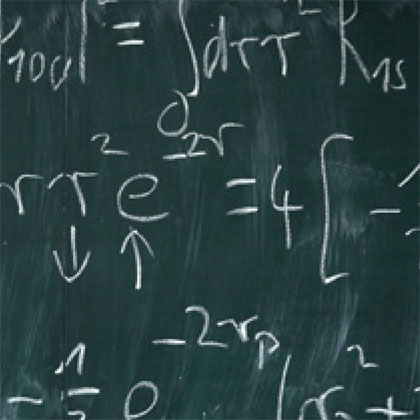
Public lecture launches the Boole Bicentenary Conference
Distinguished international and national experts will come together to provide an invaluable insight into the legacy of the founder of Boolean algebra and the forefather of the Information Age. This weekend of events will experience a taste of the cutting edge research being explored at University College Cork.
A public lecture will be held in the campus lecture theatres launches the bicenentary conference with renowned mathematician, Professor Dana Scott. In 1950 the speaker entered UC Berkeley as a first-year major in Mathematics and very soon was confronted with learning about Boolean algebras. And the encounters continue to this day! The talk will first review elementary ideas and definitions, and then discuss the impact of the work of nine 20th-century pioneers the speaker knew personally. The concluding section will outline prospects for future applications, list some outstanding problems, and point out key influences on the foundations of mathematics.
Dana Stewart Scott was born 11 October 1932 in Berkeley, California. He studied at the University of California, Berkeley, USA (Bachelor of Arts 1954). He then received his doctorate at Princeton University (Ph.D. 1958), where his advisor was Alonzo Church. Scott subsequently taught at the University of Chicago (1958-60) and then returned to Berkeley to become an Assistant and then Associate Professor (1960-63). He taught Logic and Mathematics at Stanford University as an Associate Professor (1963-67), before he was promoted to Full Professor (1967-69). Between 1968 and 1969 he accepted a visiting professorship in Amsterdam, the Netherlands. Back in the U.S., he taught Philosophy and Mathematics at Princeton University (1969-72), and then went as the first Professor of Mathematical Logic at Oxford University, UK (1972-81).
Scott subsequently became an internationally recognized mathematical logician whose work has spanned computer science, mathematics, and philosophy. He made seminal contributions to automata theory, modal logic, model theory, set theory, and the theory of programming languages. He has made fundamental contributions to contemporary logic and is known for his creation of domain theory, a branch of mathematics that is essential for analyzing computer programming languages. He taught Computer Science, Mathematical Logic and Philosophy at Carnegie Mellon University (1981-89) before becoming Hillman Professor of Computer Science (1989-2003). He also taught Symbolic Computation and Logic for one year 1992-93 at the University of Linz, Austria. He became Professor Emeritus in July of 2003. Over the years he has supervised the Ph.D. theses of 51 graduate students, some solely, some jointly.
With honorary doctorates from the Rijksuniversiteit Utrecht (1986), the Technical University of Darmstadt (1995), the University of Edinburgh (1995), the University of Ljubljana (2003), and St Andrews University, Scotland, (2014), Scott has also received among other awards the Leroy P. Steele Prize from the American Mathematical Society (1972), the Harold Pender Award, University of Pennsylvania (1990), the Rolf Schock Prize in Logic and Philosophy, Royal Swedish Academy of Sciences (1997), the Bolzano Medal for Merit in the Mathematical Sciences awarded by the Czech Academy of Sciences (2001), and the Gold Medal of the Sobolev Institute of Mathematics, Novosibirsk, Russia (2009).
After retirement, he and his wife, Irene, have now resided in Berkeley since 2005. Their daughter, Monica, lives nearby with her husband and the two grandchildren.